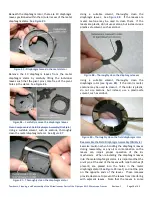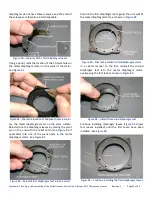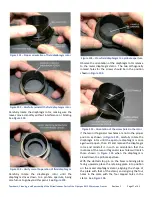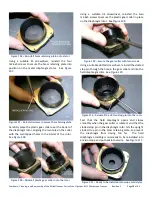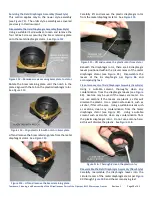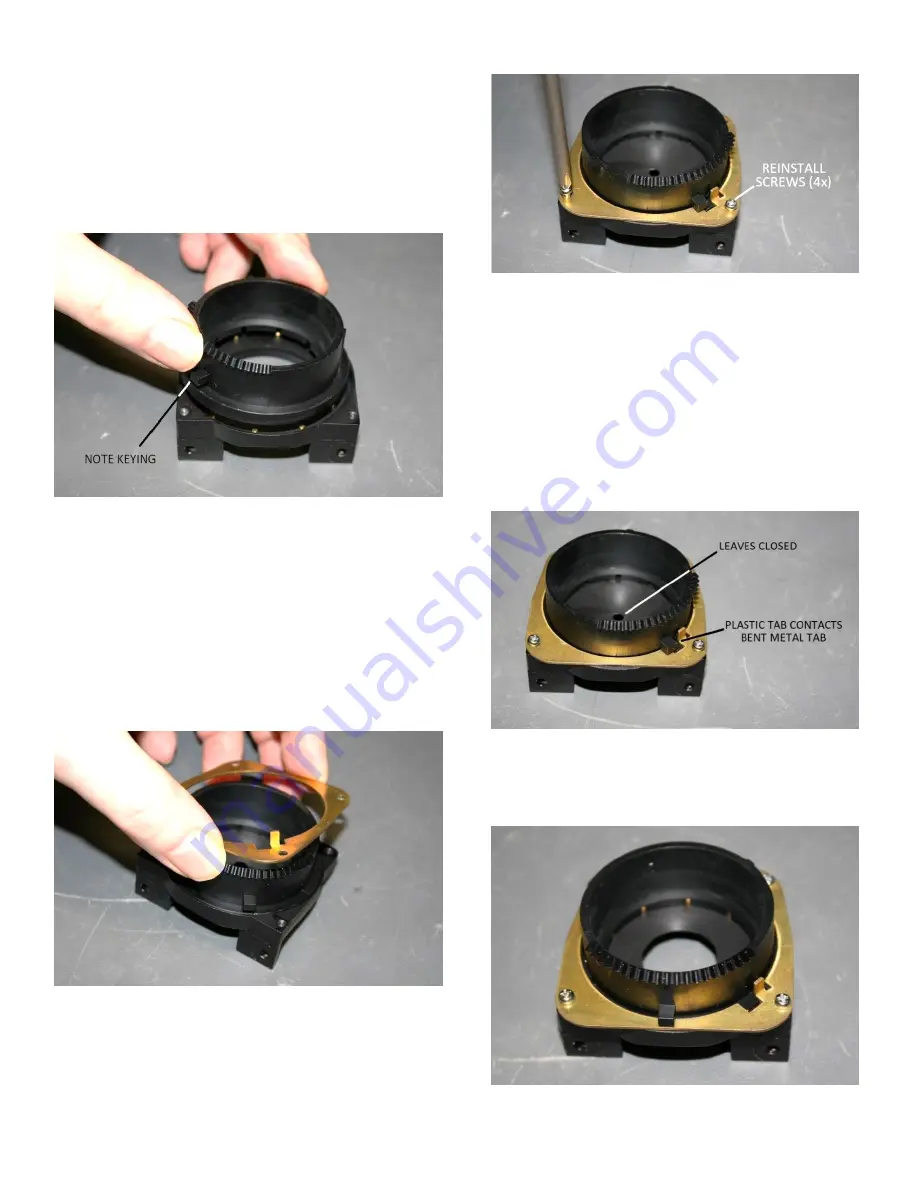
Teardown, Cleaning, and Reassembly of the Miscellaneous Parts of the Olympus BH-2 Microscope Frames
Revision 1
Page 30 of 45
With the diaphragm leaves positioned against the side
wall of the metal diaphragm stator, carefully reinstall
the plastic diaphragm rotor over the installed leaves,
making sure the radial notches in the rotor drop down
over the upward-pointing pivot pins on the leaves. Be
sure to install the rotor with the keying shown in
Figure 117
–
Carefully place the plastic rotor into position
Carefully rotate the diaphragm rotor, making sure that
the leaves move smoothly without interference,
excessive resistance, or binding.
Once the leaves have been verified to be moving, place
the brass retaining plate into position on the metal
diaphragm stator, aligning the shape of the plate with
that of the stator, and aligning the four holes in the
plate with the four tapped holes in the stator. See
Figure 118
–
Reinstall brass retaining plate onto stator
Using a suitable JIS screwdriver, reinstall the four
m2.6x5 screws to secure the brass retaining plate into
position on the metal diaphragm stator. See
Figure 119
–
Reinstall screws to secure the retaining plate
Test that the diaphragm opens and closes smoothly
when the plastic rotor is rotated, and that the stop tab
on the plastic rotor hits the upright stop tab on the
brass retaining plate, to prevent the diaphragm from
closing too far (see
). If the plastic stop tab
does not hit the metal tab at the correct minimum
aperture size, remove and reinstall the plastic rotor as
described above, paying careful attention to the
orientation of the plastic collar relative to the metal
diaphragm stator.
Figure 120
–
Plastic stop tab hits tab on retaining plate
The newer style field diaphragm assembly is now ready
to be reinstalled into a scope and put back into service.
See
Figure 121
–
Ready to be installed into scope (new style)









